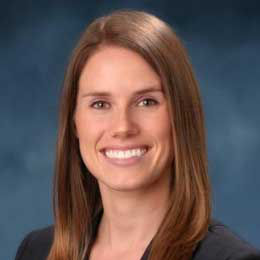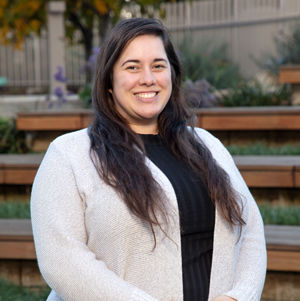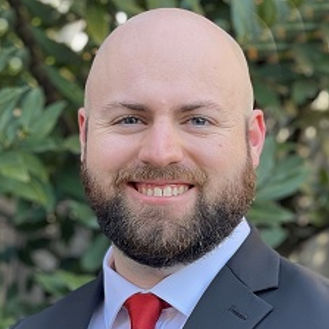Notice of West building lobby closure at Lucile Packard Children’s Hospital Stanford
Antimicrobial Stewardship Program Team

Dr. Schwenk is a Clinical Associate Professor of Pediatrics in the Division of Pediatric Infectious Diseases at the Stanford University School of Medicine. He received his medical degree from the University of Texas Southwestern Medical School and a Master’s of Public Health (Clinical Effectiveness) from the Harvard T.H. Chan School of Public Health. He completed his training in pediatrics at Lucile Packard Children’s Hospital Stanford before completing fellowships in pediatric infectious diseases and pediatric health services research at Boston Children’s Hospital. As Medical Director of the Lucile Packard Children’s Hospital Stanford Antimicrobial Stewardship Program, he is responsible for identifying and implementing strategies that improve antimicrobial utilization across the continuum of pediatric care. Dr. Schwenk has a particular interest in the stewardship of antimicrobial use in critically ill and immunocompromised patient populations. Dr. Schwenk is also Co-Clinical Chief of the Division of Pediatric Infectious Diseases and Co-Chair of the Lucile Packard Children’s Hospital Stanford Pharmacy and Therapeutics Committee.

Dr. O’Brien is a clinical assistant professor of Pediatrics in the Division of Pediatric Infectious Diseases at the Stanford University School of Medicine. She joined the hospital’s antimicrobial stewardship program in the Summer of 2023. As Associate Medical Director, she is responsible for improving antimicrobial utilization with a particular emphasis on outpatient stewardship. She also has an interest in diagnostic stewardship and stewardship in immunocompromised hosts. She received her medical degree from the University of California at Irvine and completed both her residency and fellowship training at Stanford. Her prior research experience includes oral antibiotics vs outpatient parenteral therapy for complicated pneumonia with effusion or empyema, as well as diagnostic evaluation for invasive fungal infections in immunocompromised hosts, pediatric tuberculosis infection, and COVID-19.

As Lead Pharmacist of the Antimicrobial Stewardship Program (ASP) at Lucile Packard Children’s Hospital Stanford (LPCHS), Laura Bio, PharmD, BCPS, BCIDP, is responsible for daily stewardship activities and supporting the inpatient Pediatric Infectious Diseases consult service as a drug information expert. After completing an ASHP-accredited pharmacy practice residency at Temple University Hospital and a pediatric pharmacy practice specialty residency at the Philadelphia College of Pharmacy (PCP), she started her career as an Assistant Professor PCP where she focused her teaching and research in infectious diseases and pediatric pharmacokinetics.
Dr. Bio has plays an integral role in expanding the ASP and achieving programmatic recognition, such as by the Infectious Diseases Society of America (IDSA) as a Center of Excellence. Dr. Bio has continued her research, with a focus on evaluating antimicrobial stewardship interventions through quality improvement projects, improving antimicrobial dosing regimens based on pharmacokinetics, and reducing patient exposure to unnecessary antimicrobials. Dr. Bio also serves as the pharmacy residency research mentor and preceptor of the infectious diseases’ rotation.

Lauren Puckett, PharmD, BCIDP, is the Ambulatory Antimicrobial Stewardship Pharmacist at Lucile Packard Children’s Hospital Stanford since 2020. Her activities include both inpatient and outpatient daily antimicrobial stewardship activities, as well as supporting the outpatient Pediatric Infectious Disease department and Stanford Children’s Home Pharmacy. After graduating from University of Houston College of Pharmacy in Houston, Texas, she completed her PGY-1 pharmacy practice residency at the Medical University of South Carolina in Charleston, South Carolina, and her PGY-2 in pediatric Infectious Disease pharmacy residency at Connecticut Children’s hospital in Hartford, Connecticut. Her research interests include antimicrobial stewardship-based quality improvement projects, pharmacokinetic and pharmacodynamic optimization of beta-lactam antibiotics, and implementation of antimicrobial stewardship initiatives in the ambulatory setting.

Sean Cornell is the Analytics & Clinical Effectiveness Specialist dedicated to supporting the Antimicrobial Stewardship program at Lucile Packard Children’s Hospital Stanford since 2021. His support includes inpatient and outpatient data analysis, dashboard builds, and metric composition. After graduating from the University of Oregon’s Charles H. Lundquist College of Business with a BS in business administration, he immediately began a health care career in his hometown of Corvallis, Oregon, as a business analyst for a health insurance company. In 2019, he transitioned from health insurance to health care as a data analyst for Community Medical Centers (CMC) in Fresno, California. He served as the primary analyst for supply chain insights at CMC’s COVID-19 command center.
Connect with us:
Download our App: